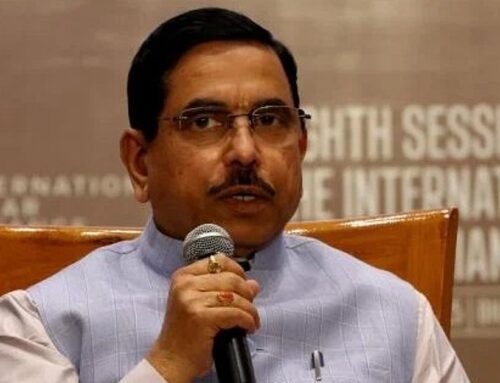General Practitioner Physicians in Germany Rarely Prescribe Medical Cannabis
October 6, 2025
[PRESS RELEASE] – FRANKFURT, a.M., Oct. 6, 2025 – Medical cannabis remains rarely prescribed by many general practitioners in Germany, even after being reclassified as a non-narcotic under the Medical Cannabis Act in April 2024.
This is one of the key results of a DocCheck survey of 500 physicians published Oct. 6, 2025. DocCheck is the largest community for physicians, medical assistants, pharmacists and other health care professionals in Europe.
Additionally, a parallel survey conducted by Bloomwell Group, which operates Germany’s largest platform for medical cannabis therapy, of patients utilizing its digital health services yielded a similar conclusion: Primary care doctors remain reluctant – even resistant – to prescribe medical cannabis.
Despite clear indications of patient need, many specialists and general practitioners either refuse cannabis therapy outright or initially insist on prescribing narcotics, often with strong side effects and a high potential for addiction. This occurs even though 90% of patients report they were able to significantly reduce – or completely discontinue – other medications through cannabis therapy.
This has led to people turning away from the public insurance market and accessing medical cannabis prescriptions as self-paying patients via digital health services. According to Bloomwell’s data, compared to March 2024, the last month before medical cannabis was reclassified as a non-narcotic, the number of monthly patients had increased by more than 1,700% by September 2025. Even with the dramatic rise in patients, prices remain affordable for self-paying patients, with the majority of flower prescribed costing less than 6 Euros per gram.
The survey results coincide with a rise in medical cannabis opposition by Germany’s Federal Ministry of Health (BMG), which is seeking to restrict digital access by requiring in-person visits and banning prescription deliveries under a draft amendment that was released earlier this year. However, the data amplifies the need for both digital access, as well as more physicians educated in the possibilities and potential benefits of medical cannabis.
“Our surveys clearly disprove the baseless claim of widespread medical cannabis abuse, which Germany’s Federal Ministry of Health has misguidedly cited to justify its call to restrict access to medical cannabis therapy,” Dr. Julian Wichmann, co-founder and CEO of Bloomwell GmbH, said. “In reality, patients are exhausted from having to plead for treatment, only to be denied. They want the opportunity to try medical cannabis before resorting to medications with far more severe side effects. Yet, many doctors are unwilling to allow this, even when they already prescribe cannabis in exceptional cases.
“Instead, they often favor narcotics with serious side effects and high addiction potential. It’s no surprise, then, that patients rate their doctors’ expertise on cannabis as ‘poor.’ We also see general practitioners referring patients to other doctors or telemedicine platforms for cannabis treatment, which means these patients are missing from the country’s public health insurance statistics. As a viable alternative to obtain the treatment they need, many patients are choosing self-pay options to access modern digital therapy via apps.”
Additional key findings include:
- 55% of surveyed patients had attempted to discuss cannabis therapy with their doctor.
- Almost two-thirds rated their doctors’ expertise in medical cannabis as “poor” or “unsatisfactory.”
- Only 13% of patients who suggested cannabis therapy as a treatment to their physician received a prescription.
- Common reasons for doctors’ refusal included reimbursement concerns (26.5%), a lack of experience among physicians (39.1%), opposition to cannabinoid treatment in principle (41.1%), or general reservations (55%).
- Instead, 68.7% of patients were prescribed alternative medications, including 56.2% for narcotics (e.g., fentanyl for chronic pain).
- Medical cannabis allowed 62.8% of patients to completely discontinue at least one other medication, and 28.1% significantly reduced at least one medication.
- Among general practitioners surveyed, 28% reported they have never prescribed medical cannabis.
- Fewer than one in five doctors would start medical cannabis treatment for a chronically ill pain patient without first trying other medications like Tilidine or fentanyl, both opioids.
- For common conditions such as sleep disorders (16%) or migraines (10%), only a small number of doctors have prescribed medical cannabis.
“Our data clearly confirms why the government won’t reform the Medical Cannabis Act based on the current draft,” Bloomwell Group co-founder and CEO Niklas Kouparanis said. “Our analysis shows that the assumed risk of abuse underlying the proposed legislative changes is unfounded. Ninety percent of patients were able to stop or reduce other medications thanks to medical cannabis. Why should they be denied a better quality of life?
“The growing number of patients paying privately on specialized platforms is understandable: They face persistent stigma but want modern, effective, digital and affordable treatment. With costs now starting at around €30 per month, cannabis therapy is accessible to more patients than ever. We offer to share our unique European data pool to bring common sense into this debate.”
The full survey data and report can be viewed here.
Search
RECENT PRESS RELEASES
Related Post



